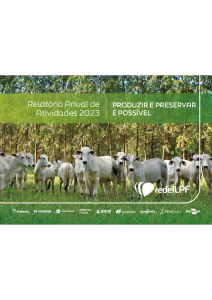In the context of agriculture, land degradation leads to decreasing of production capacity, through the reduction of soil quality with negative impacts on soil physical, chemical and biological attributes. The main agent of soil degradation worldwide is water erosion, which is a natural process in the formation of landscapes but is intensified by anthropic actions such as agriculture. Soil erosion in croplands and rangelands is mainly caused by the soil usage and land management with inadequate agricultural practices; in turn, the water erosion is the main factor responsible for expansion of degraded lands in the world. Water erosion compromises the attainment of high levels of crop production and the intensification of agricultural, as well as the environmental quality of ecosystems, due to water contamination and the reduction of water availability for many usages ( Andrade & Chaves, 2012; FAO, 2019) .



